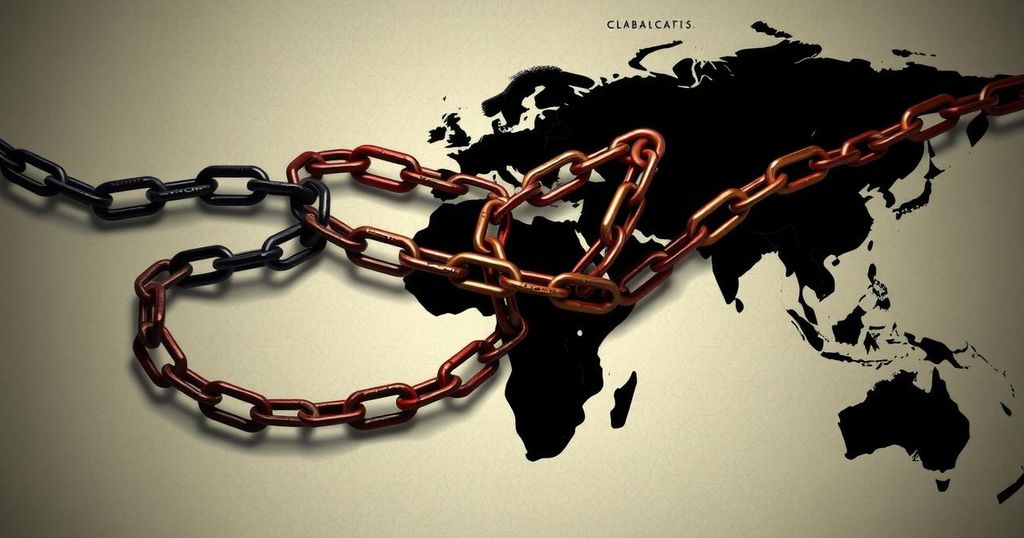An Overview of Wagner Group: Origins, Operations, and Leadership

The Wagner Group, a Russian mercenary organization, operates under governmental auspices despite the illegality of private military entities in Russia. Established in December 2022, it has engaged in numerous global military operations, especially in Syria and Ukraine. The group’s origins involve former military personnel, and it is closely linked to Yevgeny Prigozhin, who has become a pivotal figure in its management and operations. Its activities have raised significant human rights concerns while influencing Russian foreign policy.
The Wagner Group, officially known as PMC Wagner, is a Russian mercenary organization that operates under the auspices of the Russian government. Despite the illegality of private military companies in Russia, strong ties between Wagner and state military structures have been confirmed by President Vladimir Putin. Established in December 2022, Wagner’s military operations span the globe, with significant involvement in conflict zones such as Syria and Ukraine, reflecting its dual role as a mercenary force and a strategic asset of the Russian state.
The origins of the Wagner Group trace back nearly a decade, primarily involving Dmitry Utkin, a former special forces officer, and the Slavonic Corps. The group gained prominence during the Syrian Civil War, initially as part of a failed campaign to support the Assad regime. Following this, Wagner’s activities intensified following the 2014 annexation of Crimea and the conflict in Eastern Ukraine, where it began to underpin Russia’s covert military interventions while maintaining plausible deniability.
Wagner expanded its operations significantly across regions like the Middle East and Africa post 2014, establishing a reputation for brutal tactics. Operating in countries such as Mali, Libya, and the Central African Republic, Wagner engaged in various military operations that often included human rights abuses and war crimes. Meanwhile, Yevgeny Prigozhin, who has been described as “Putin’s chef,” functions as the entity’s director, orchestrating financial and logistical support while cultivating relations with military and political figures.
The group was heavily involved in the Syrian civil war, supporting Assad’s regime against both local and international adversaries, often engaging U.S. forces indirectly. An incident in 2018 exemplified this when Wagner forces attacked American troops at a gas facility, resulting in significant casualties for Wagner while U.S. forces remained unharmed. As a means of sustaining its operations, Wagner has been associated with resource extraction in conflict zones, enriching Prigozhin and indirectly funding the Kremlin.
In response to Russia’s full-scale invasion of Ukraine in 2022, Wagner’s ranks expanded by recruiting inmates and convicts to join the fight, marking a significant rise in combatants from 5,000 to over 50,000. After sustained fighting in eastern Ukraine, particularly around Bakhmut, the group claimed victories amid high casualties, illustrating Wagner’s growing reliance on less conventional military strategies. This involvement has created tensions between Prigozhin and the Russian military hierarchy, erupting into a public feud culminating in a short-lived rebellion in June 2023.
During the mutiny, Prigozhin challenged military leaders, occupying key military positions with his forces. Following a brief advance toward Moscow, an agreement mediated by Belarus resulted in his retreat and a promise of amnesty for Wagner forces. Shortly thereafter, Prigozhin’s crash in August 2023 raised suspicions regarding his fate and that of Wagner, leaving the organization’s future uncertain in the wake of his sudden demise and ongoing Russian military operations.
This article discusses the Wagner Group, a Russian private military company that operates under the government’s auspices, despite the absence of legal recognition in Russia. The group has its roots in previous conflicts, beginning with the Syrian Civil War, and has evolved into a significant force in supporting Russian military objectives abroad, particularly in regions like Africa and Ukraine. It illustrates the intersection of business and military operations within the context of Russian foreign policy. Furthermore, it highlights the complex relationship between the group’s leadership, especially Yevgeny Prigozhin, and the Russian government, particularly during recent conflicts and significant geopolitical developments.
The Wagner Group’s extensive involvement in global conflicts underlines its role as a private military asset for the Russian state. The group’s origins reflect a murky development intertwined with Russian military strategies, while its operations in various regions often entail serious human rights violations. The dynamics of leadership within Wagner, particularly the tensions with the Russian military hierarchy, culminated in a dramatic rebellion, leaving the future of the organization and its operations uncertain after the death of its head, Prigozhin.
Original Source: www.britannica.com






